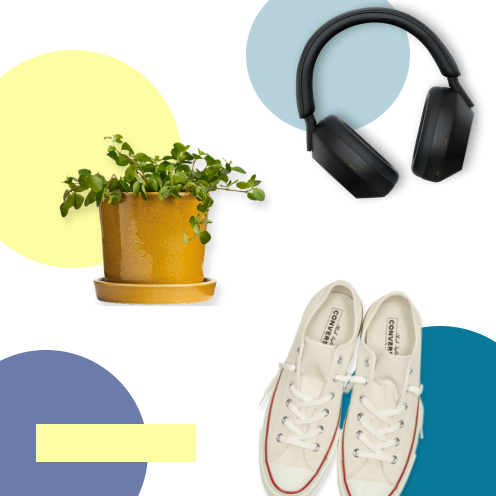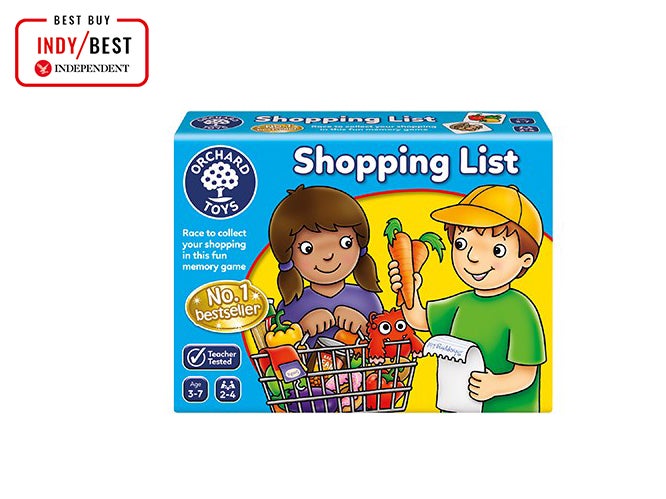
The Independent's journalism is supported by our readers. When you purchase through links on our site, we may earn commission. Why trust us?
9 best kids’ memory games to help develop young minds
Improve your child’s concentration with these fun activities – we’re certain they’ll want a re-match
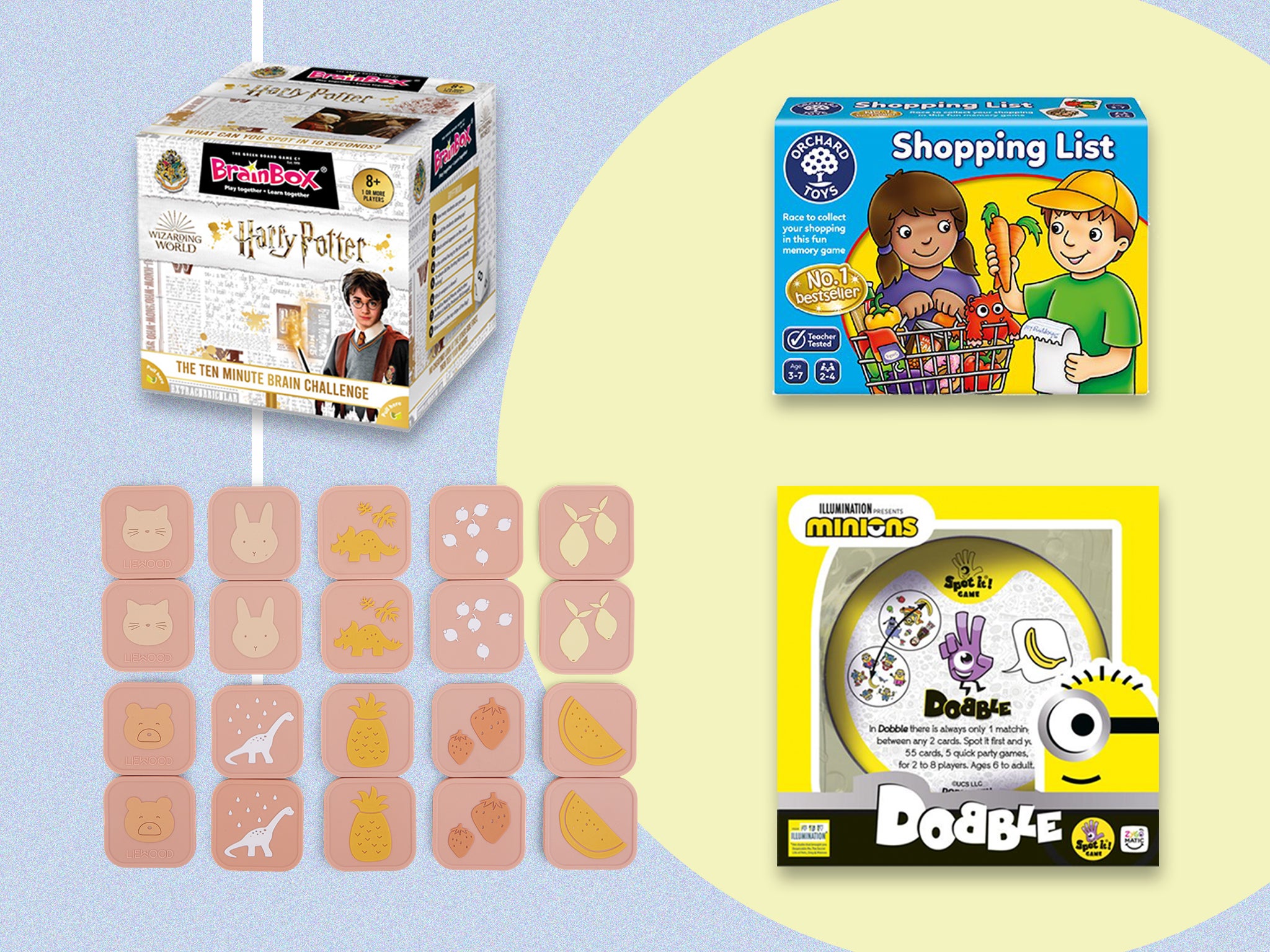
Kids have games on the brain, from hours spent playing “I spy” on long car journeys to racing home from school to play on their console, in a child’s world it doesn’t get much better than playing.
But propose an activity on memory development and it might not create the same buzz.
A crucial part of a child’s development is their memory, which needs to be exercised and stimulated to progress. That’s why memory games can help children (and adults) to improve everything from concentration and flexible thinking to speeding up recognition. It’s an all over workout for growing brains.
How we tested
With the help of a three-year-old, five-year-old and 12-year-old we were able to put a whole range of memory games to the test. We tested those that can be played independently and those they could play together.
But what we were looking for mainly, of course, was an ability to encourage, enhance and excite the memory. The games that our little testers soon returned to, or played repeatedly, garnered top points.
Read more:
The best memory games for kids for 2021:
- Best overall – Orchard Toys shopping list: £8.50, Orchardtoys.com
- Best for older kids – BrainBolt: £20.50, Learningresources.co.uk
- Best for travel – Melissa & Doug memory game: £10.99, Amazon.co.uk
- Best for creativity – Smart Games grabbit: £19.99, Smarttoysandgames.co.uk
- Best for compact design – Liewood easton memory game: £24, Kidly.co.uk
- Best for longer games – Brainbox ‘Harry Potter’: £14, Amazon.co.uk
- Best for bath time – Janod bath memory card game: £9.99, Yesbebe.co.uk
- Best for multiple games – Dobble minions game: £15, Thetoyshop.com
- Best for card game – Mizzie memory match and flash cards: £13.95, Mizziethekangaroo.co.uk
Orchard Toys shopping list

Best: Overall
Rating: 9/10
Did you know, an Orchard Toys shopping list is sold every five minutes? Observe or play a game and you’ll soon see why. Designed for two to four players, the aim of the game is to fill your trolley or basket first by working through your shopping list and turning over the 32 item cards. It’s incredibly simple but so playful that young ones don’t realise they’re putting their memory skills to the test.
This game inspired plenty of food-related chat from our three and five-year-old testers, and while it was a little challenging for the younger one it was a pleasure to watch them sit and play together, all the while developing vital skills. It’s short and engaging making it the perfect go-to game for siblings or friends aged three to seven years. No wonder it celebrated its 25th anniversary last year.
Learning Resources brainbolt
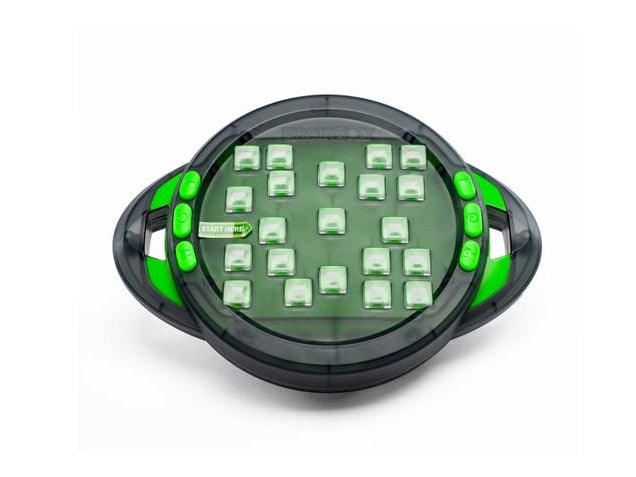
Best: For older kids
Rating: 9/10
There’s something about flashing lights and jazzy sounds that makes a game an instant hit with youngsters. In fact, our testers soon formed an orderly queue for brainbolt. Designed for those aged seven and up, our 12-year-old was glued – if not a little obsessed – to this memory game. And after trying our hands, the appeal was pretty obvious to us too.
An ergonomically hand-held designed game, challenge your brain by memorising the light sequence and following along for as long as you can without breaking the pattern. On paper it sounds easy, in reality it’s an addictive test that we all got a taste for. If you tire of the original game, you can mix things up by challenging a component in a head to head or add additional pressure by playing in timed mode. There’s even an advanced mode for experts, but we can’t quite comment on that yet.
Melissa & Doug memory game
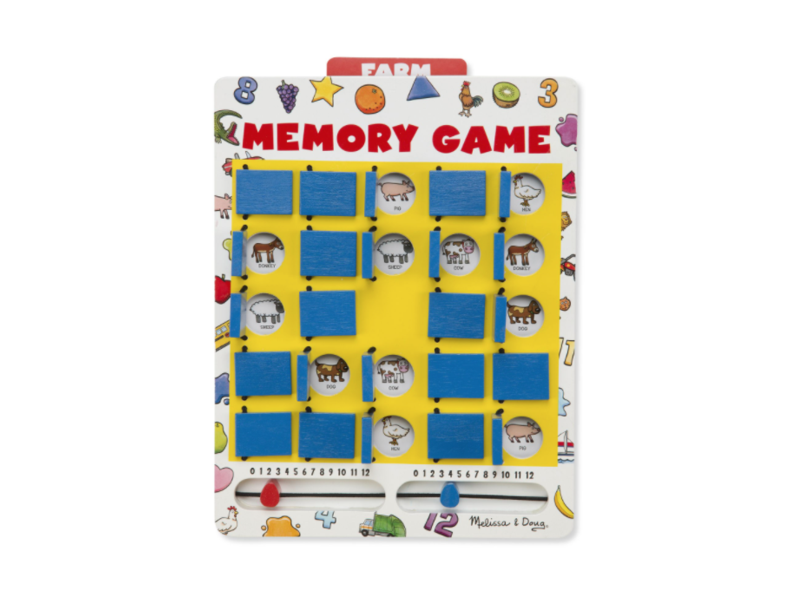
Best: For travel
Rating: 9/10
Ever tried to play a game of pairs in the back seat of a car, or a tiny table in a café? Yes, we agree it’s never worth it. That’s where Melissa & Doug’s portable memory game steps up to the plate.
On a board roughly the size of an A4 piece of paper, two players get to choose from 14 fun themes, slide one of the double-sided themed cards into the game board and start hunting and memorising the matches behind the blue tiles. The tiles are a good size for little hands, and there’s even a handy built-in scoreboard.
Our five-year-old tester has even requested to take it to school, and in all fairness it fits in her school bag. We love that there are no loose pieces and everything is conveniently stored on the board itself.
Smart Games grabbit
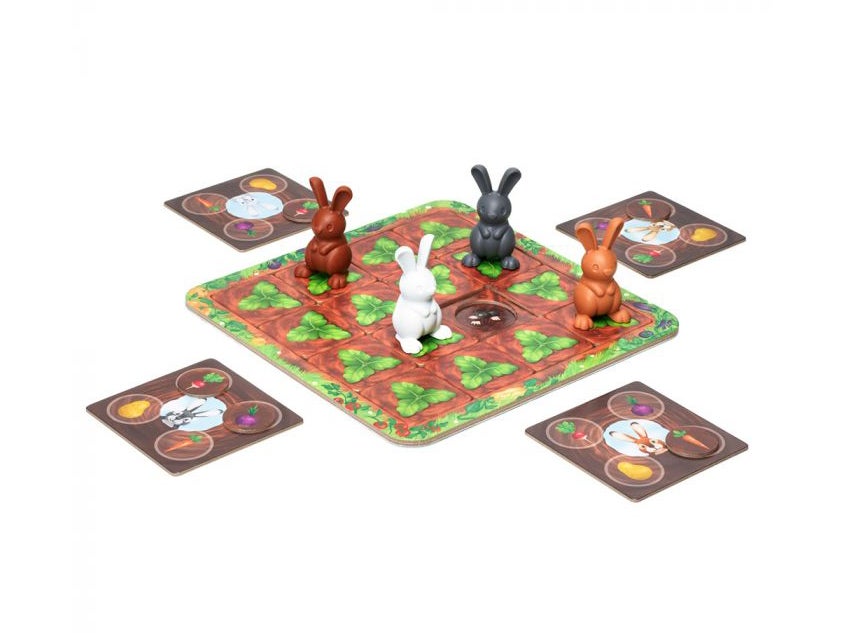
Best: For creativity
Rating: 9/10
Smart Games have been creating educational toys for more than 25 years, and we’re big fans. One of the latest inventions from the talented team is Grabbit, a multiplayer memory game. And it took no convincing for our five-year-old tester to start emptying the box as soon as she spotted the bunnies on the front.
Inside the box there are four different coloured rubber bunnies (the perfect size for small hands) with matching vegetable scorecards, 16 leaf tiles and 16 vegetable tokens. The board gets covered with the veggie tokens, and then covered again with the leaf tiles. It’s then the rabbit’s job to move around the board, using the moveable leaf tiles, to collect their veggies – if they can remember where they’re buried. The first bunny to collect all four is the winner.
If you decide to play the expert version – which we did on our second attempt – there’s an added difficulty, underneath the token there may be a mole or rat lurking, this means you get to steal or have to return one of your own tokens. Cleverly created, this game interested both our five-year-old, 12-year-old and the adults too. Developing memory and concentration through play but in a fun way – hoppy players indeed.
Liewood easton memory game
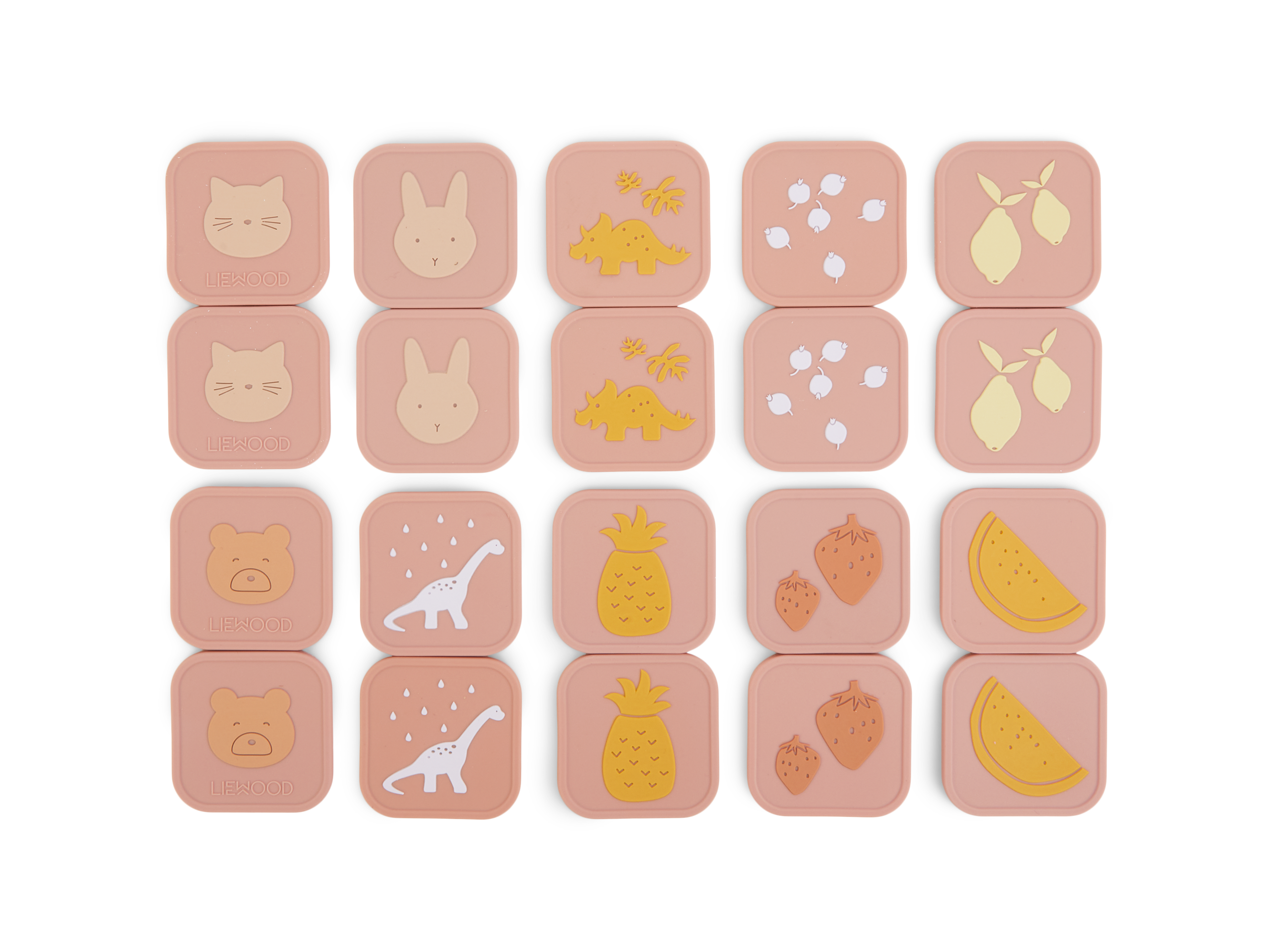
Best: For compact design
Rating: 8/10
We’re big fans of Nordic kids brand Liewood who design simple useful products which are user friendly and easy on the eye. The easton memory game includes 10 pairs of patterned tiles from dinosaurs and cats to strawberries and pineapples – all players need to do is match them up from memory. Suitable for toddlers and up, this is a quick-fire game that comes packed in a compact box making it travel friendly. We love that it’s made from silicone, so unlike cardboard alternatives, these tiles won’t rip, and you can wipe them clean too.
Brainbox Harry Potter
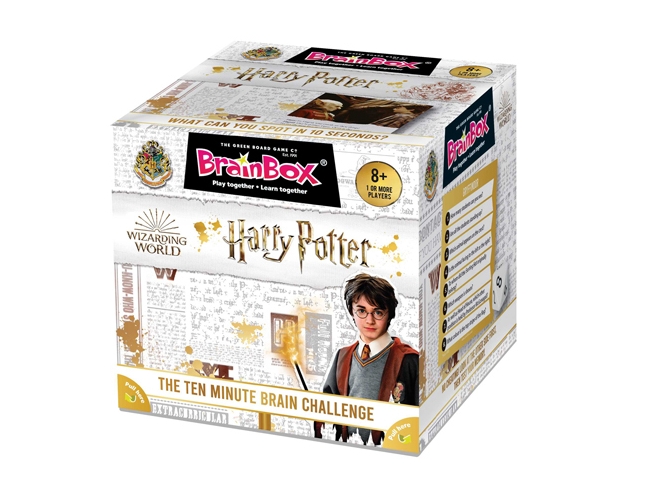
Best: For longer games
Rating: 8/10
Brainbox is a 10-minute brain challenge, but we’re confident kids will be back for more. There’s a wide range of themes available, but we chose everyone’s favourite wizard, Harry Potter, which is suitable for those aged eight years plus.
Featuring cards with scenes from all eight Harry Potter films, with favourite characters and memorable moments you’ll have ten seconds to absorb as much information as you can before the sand timer runs out. Roll the dice and your opponent will ask the question number you rolled. If you win you keep the card, if not it goes back in the box. Whoever has the most cards after ten minutes is crowned the winner. Concentration is key, but we found our 12-year-old tester’s competitive streak helped too.
Janod bath memory card game
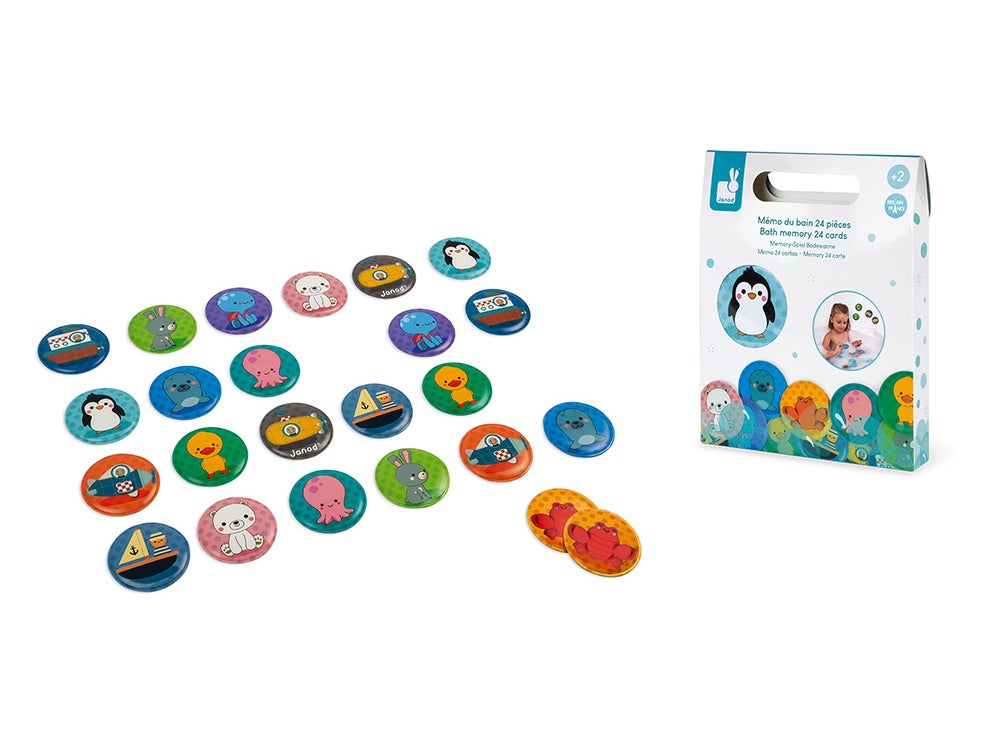
Best: For bath time
Rating: 8/10
Letting your child play in the bath usually results in wet legs for mums and dads, but did you know bath play can become educational too? Either float the 24 cards on the surface of the water or stick to the walls of the bath or tiles. Our three-year-old and five-year-old testers enjoyed the novelty of playing a game together in the bath, as they simply turned the pieces over and collected their matches. Our only slight niggle, the cards require drying once played to avoid mould, and of course that didn’t interest our testers half as much.
Dobble Minions Game – 5-games-in-1
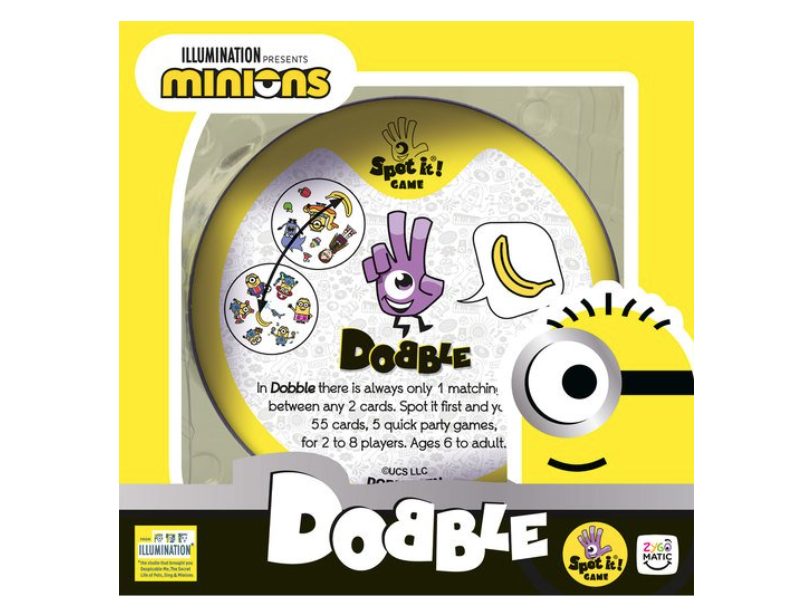
Best: For multiple games
Rating: 8/10
The game Dobble itself is more based on observation skills rather than memory, but it really gets the brain juices flowing so we had to include it. Players will need to remember the five different sets of rules which vary depending on the mini game you decide to play (these are stated in the included rule book).
Inside the tin there are 55 round cards with 50 symbols, and every card will have one matching symbol – the edition we reviewed was the popular Minions version from Despicable Me. Kids are certainly at an advantage if they know the Minion’s name, but they are all listed in the rule book. The five mini games are just creative ways of getting through the cards and shouting out the matching symbol. Some you win by getting rid of your cards, others you win by being the first to have no cards.
But our favourite was ‘The Well’. You can play up to eight players recommended age being six years plus. To keep the game civilised – within reason – we’d recommend playing with four players aged over eight years. It’s a game of fun speedy observation, be warned… it’s hard to put down.
Mizzie The Kangaroo memory match flash cards
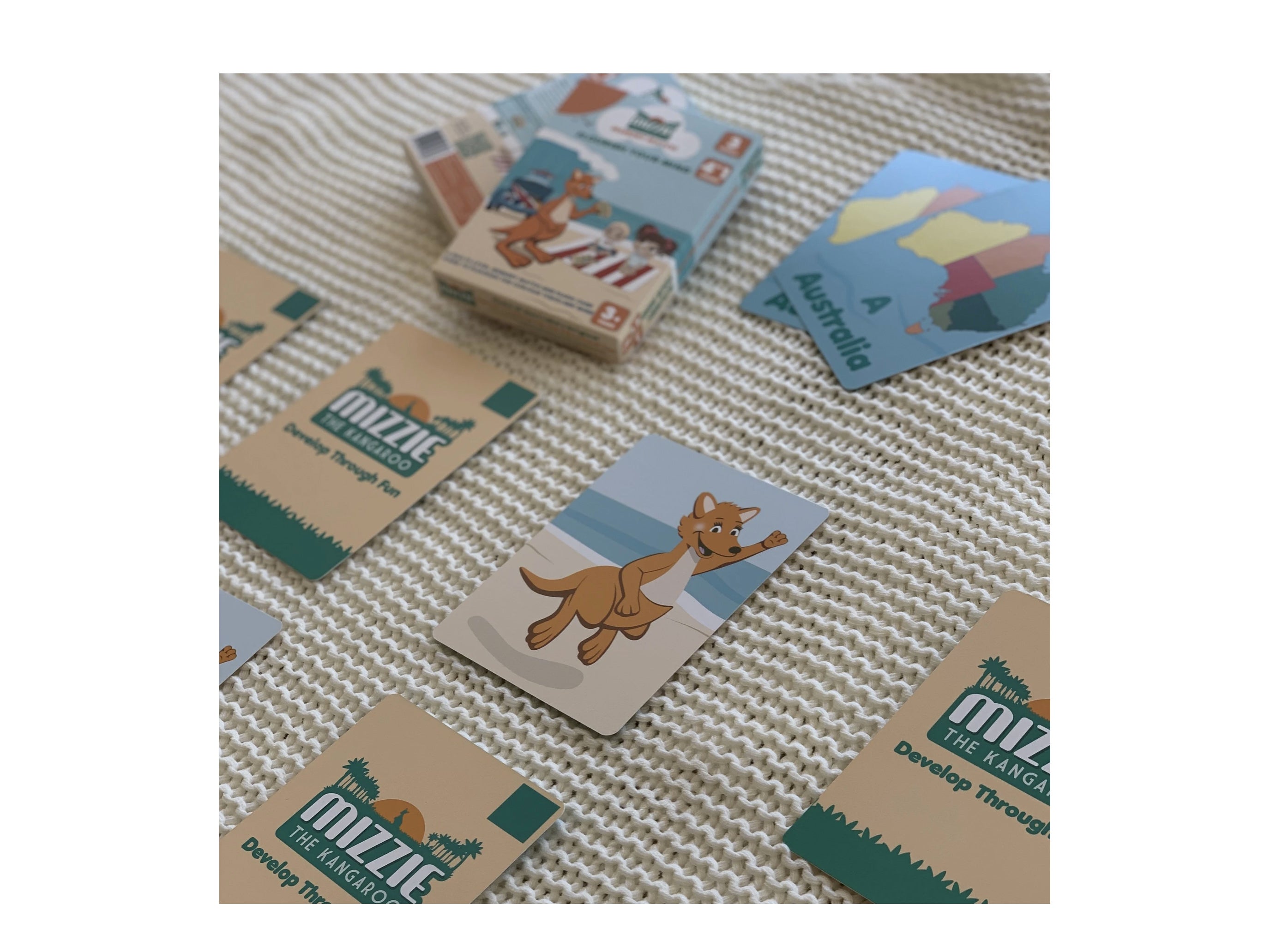
Best: Card game
Rating: 7/10
There’s something comforting about stripping back to the basics and just playing with a pack of cards. Parents may be familiar with Australia’s Mizzie the Kangaroo, a natural teething toy. The brand has now branched out to the world of developmental cards in a big way… quite literally with 36 jumbo cards.
In the pack, 18 cards are matching pairs allowing you to play a classic memory matching game, we enjoyed the illustrations with strong influences of life down under such as Mizzie the Kangaroo herself. But there’s also flashcards which have numbers and letters, as well as Aussie-inspired illustrations so there’s plenty for parents and young learners to get stuck into.
The verdict: Memory games for kids
There’s a reason Orchard Toys sell one shopping list game every five minutes as it’s exactly what you want out of a memory game for young children. Captivating, creative and a quick and easy to follow game… with change from a tenner. For older kids, brainbolt by Learning Resources smartly hones in on competitiveness, beware though it’s pretty addictive.
Voucher codes
For the latest discounts kids’ toys, clothes and other essentials, try the links below:
From tents to train sets, check out our best gifts for 3-year-olds that inspire learning and creativity
